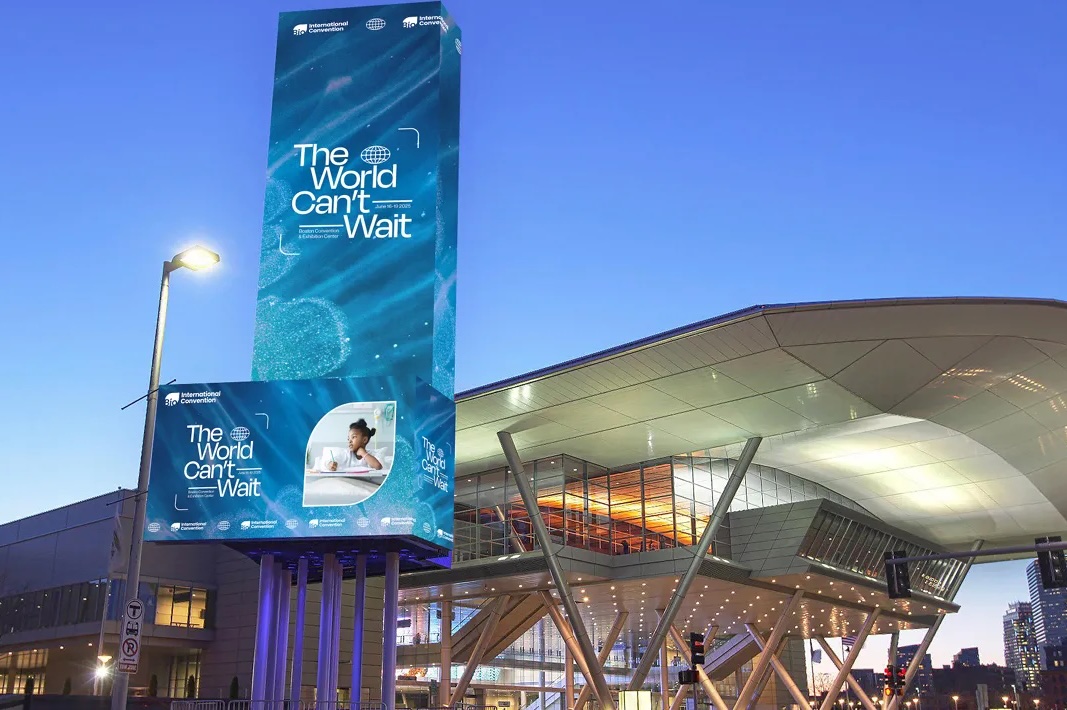The World Can’t Wait: Reflections from BIO International 2025

At this year’s Biotechnology Innovation Organization (BIO) International Convention, scientists, researchers, innovators, students, patient advocates, and more gathered from all over the world in Boston, Massachusetts, the epicenter of biotechnology. The theme of the event was, “The World Can’t Wait.”
Throughout the week, participants shared their viewpoints from various healthcare sectors about why time is precious. The consensus was, we need to accelerate our drug development process to give life-saving medicines to patients quickly and cost effectively.
Together, we asked hard questions and challenged the status quo.
- “Why does it take over 10 years for a new drug to get to market?”
- “How can we alleviate the man-made challenges that hinder our productivity?”
- “How is the geopolitical landscape going to impact healthcare as we know it?”
- “Why is our population so chronically ill?”
- “How can we think beyond animal testing methods in drug development?”
The answers to these questions are being explored, and it’s clear that the industry’s brightest and most inspiring individuals are trying to solve our ecosystem’s challenges, so that our children, our grandchildren, and generations to come can live long fulfilling lives, with solutions at their fingertips.
Here are my top takeaways from the convention.
Use technology for impact
The Food and Drug Administration (FDA) Commissioner Martin A. Makary, M.D., M.P.H. described how mind reading never ends well; no one benefits from a lack of clarity. Data can tell a helpful story, if we listen to it.
Technology, such as artificial intelligence, is a bridge to innovation, but it should not replace humans. Technology should empower them, transforming tasks that once took two days into initiatives that can be completed in just six minutes. That’s what moves the needle. Time-saving initiatives free up our talent to be able to focus on meaningful engagements with patients, establishing breakthroughs, and inspiring action.
Furthermore, despite our resources, the United States is one of the sickest countries in the world. Dr. Makary reminded the audience that the “F” in the FDA means food. It’s imperative that we use data, and the technology at our disposal, to dig into the drivers of human health, and work to eliminate the harm and collectively combat our heath crisis.
A reimagined perspective on failure
In a session intended to give students the mentorship and industry contacts to help break into the biotech field, an attendee mentioned, “biotech is a labor of love, [it’s about] scientists doing what they love to support people in need.” That statement couldn’t be more true. Natalie Kuldell, Founder and Executive Director at BioBuilder and Rose Blackburne, MD, MBA, Vice President, Global Head of Population Science Strategies and Women’s Health for Thermo Fisher Scientific, were among the panelists guiding students as they embarked on their professional journeys in biotech. The topic of failure came up during the meeting.
A panelist emphasized that a failed experiment does not define one’s competence or potential as a scientist. Instead, think about separating the two: the experiment is a process of gathering data, and the scientist or researcher is the one interpreting and learning from it. As the scientific landscape evolves, the young minds in the audience were encouraged to take each challenge as an opportunity to say, “I can figure this out.” We should all take notes on this approach.
Lead with your purpose and own your intellect. It may take several times to say the same thing, but resilience is one of the best traits to cultivate or have—you still need it at any level. Be brave!” - Rose Blackburne
Think beyond the status quo
At Massachusetts General Hospital, there are currently at least 1,200 patients waiting for a transplant. We don’t have enough organs to meet the demand, and finding a way of overcoming the organ shortage is one of the greatest challenges the industry is facing today. With nearly 600,000 patients on dialysis in the United States alone, and 17 patients dying every day waiting for a kidney transplant, the industry is pushing for alternative measures.
Xenotransplantation, for example, is top of mind. Its promise lies in its ability to provide a new source of organs (such as kidneys, hearts, and livers) from animals, most notably genetically modified pigs, to patients in need. Although it remains an experimental therapy, its potential in driving research and innovation in the field serves as a bright light of optimism for many.
Collaboration is the key to success
Eroom's law suggests that, despite major advances in technology and science, the cost of developing a new drug has been increasing exponentially over time, and the process has become slower and less efficient. Put simply, this law affirms that advancements can’t happen without collaboration. Sharing our knowledge is the only answer in our pursuit of progress.
Over 70 countries were represented at the event this year. John F. Crowley, President & CEO of BIO talked about the importance of coming together to turn small ideas into, “life-saving solutions.” The world needs big breakthroughs.
I left the convention feeling inspired and extremely hopeful that, when we put our heads together, we can make magic happen. Ultimately, we’re giving people time with their loved ones. The world simply can’t wait.
What our clients say

Integrated Marketing
Content Development
Public Relations
Brand Strategy
Integrated Marketing
Content Development
Public Relations
Brand Strategy
Public Relations
Brand Strategy
Integrated Marketing
Content Development
Public Relations
Brand Strategy
Integrated Marketing
Content Development
Let's start a project together.


